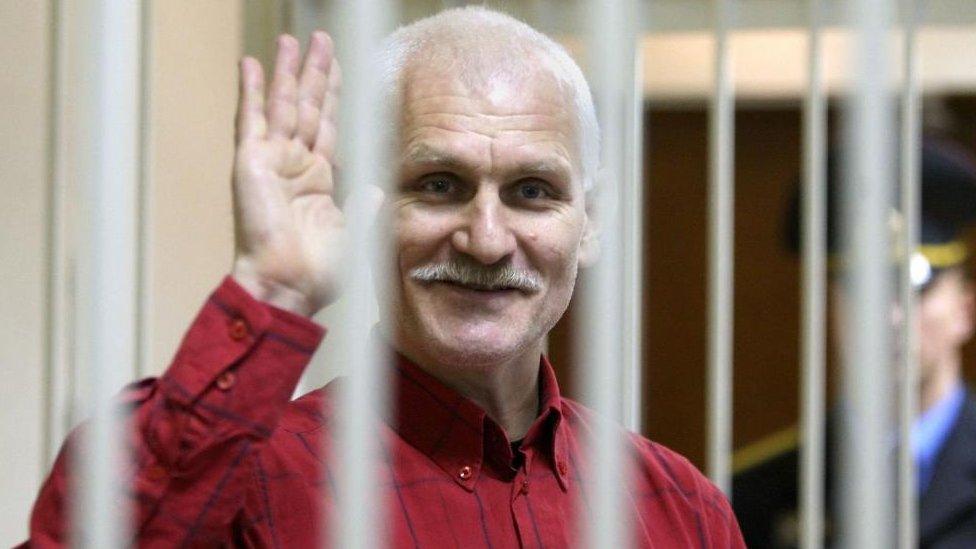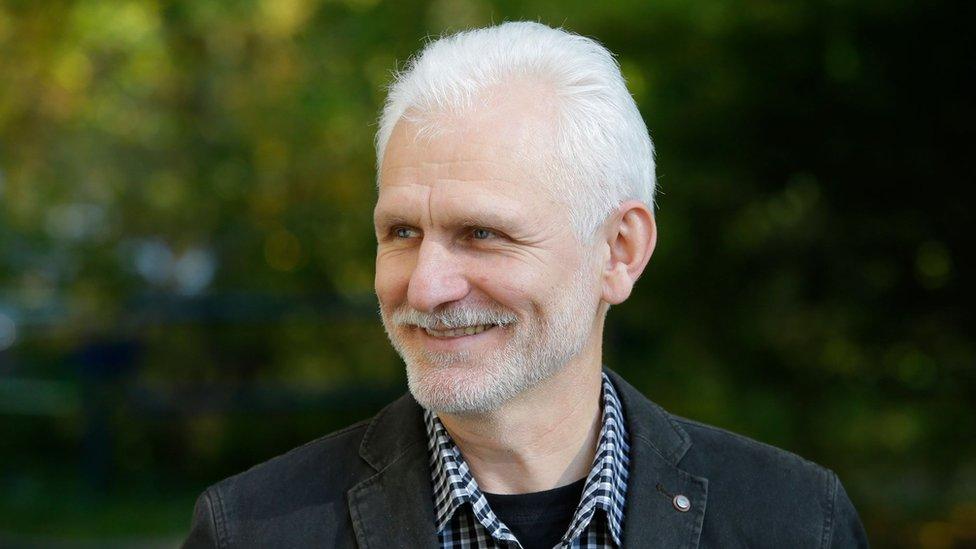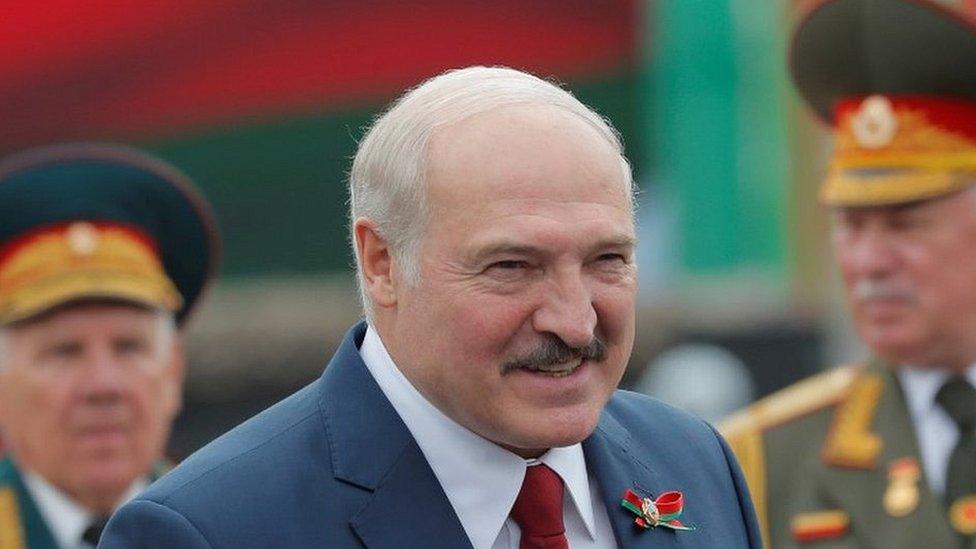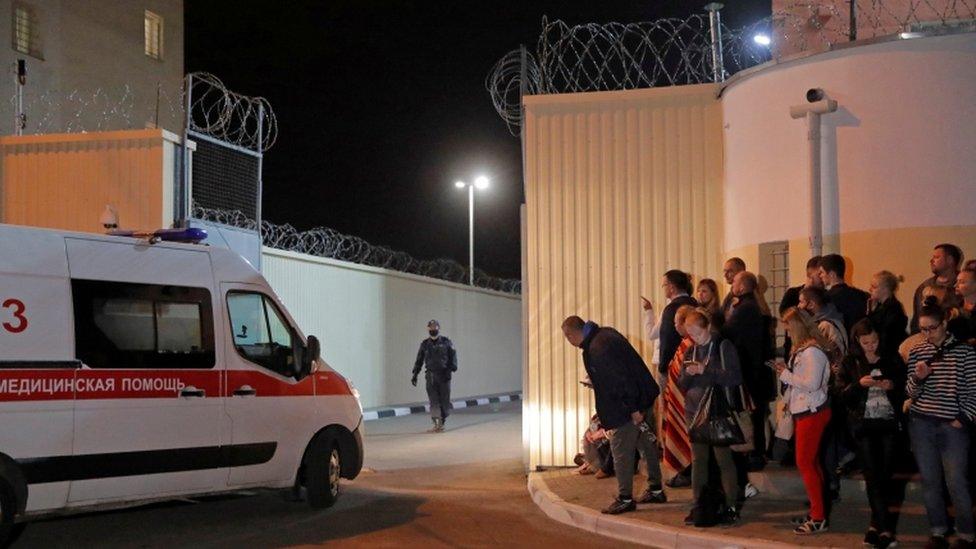Ales Bialiatski: Nobel Prize-winning activist stands trial in Belarus
- Published

Ales Bialiatski pictured in November 2021
The trial of the Nobel Peace Prize-winning human rights activist Ales Bialiatski has begun in Belarus.
Bialiatski, 60, was arrested in anti-government protests in 2021, and his supporters say that Belarus leader Alexander Lukashenko's authoritarian regime is trying to silence him.
He is accused of smuggling cash to fund opposition activity, according to the Viasna (Spring) Human Rights Centre, which Bialiatski founded.
He faces up to 12 years in prison.
He was arrested in 2021 following massive street protests over widely disputed elections that kept Belarus's long-time leader in power the previous year.
Demonstrators were met with brutality by the police and Lukashenko critics were regularly arrested and jailed during the protests, which started in 2020.
Bialiatski, who was one of three winners of the 2022 Nobel Peace Prize, has been held without trial since his arrest.
He is now in court alongside two fellow campaigners, Valentin Stefanovich and Vladimir Labkovich.
Viasna tweeted photos, external on Thursday that appeared to show Bialiatski in the courtroom. The organisation said he and his fellow defendants faced between seven and 12 years in prison.
Belarusian journalist Hanna Lubiakova said Viasna had been targeted by authorities in Minsk because it had helped victims of repression to pay for fines and lawyers, and Bialiatski himself was "the face of the organisation".
The head of the Norwegian Nobel Committee, Berit Reiss-Andersen, said when awarding the 2022 prize that "government authorities have repeatedly sought to silence" Ales Bialiatski.
"Despite tremendous personal hardship, Mr Bialiatski has not yielded an inch in his fight for human rights and democracy in Belarus," she added at the time.
Shortly before his arrest in 2021, he wrote on his Facebook page that the Belarusian authorities "are acting as a regime of occupation".
"Hundreds of thousands of demonstrators across all of Belarus, and hundreds [of them are] detained," he wrote.
Bialiatski set up Viasna in 1996 in response to the brutal crackdown of street protests in that year by Alexander Lukashenko, who has been president of Belarus since the office was established in 1994.
The organisation supported jailed demonstrators and their families, and documented how the authorities tortured political prisoners.
He was jailed for three years in 2011 after being convicted on tax evasion charges, which he denied.
The Belarus leader, an ally of Russian President Vladimir Putin, rules with an iron fist, and has in the past been described in the West as Europe's last dictator.
He has allowed the Russian leader to launch missile attacks from Belarus as part of Russia's invasion of Ukraine.
He has also allowed Russia to send troops to Belarus and has been sanctioned for his role in the invasion.
Related topics
- Published7 October 2022

- Published11 September 2020

- Published27 May 2021
